In the Spring of 2017, I met this eccentric chap.

Steve Odell of Rabbit’s Moon Tea Arts, and the purveyor of Portland’s one and only hotspot for tea nightlife—The Speakteasy Underground. I wrote about the entire first encounter, but there was one important detail I didn’t fully divulge. That being, what he passed on to me before I left. Five teas from my favorite mountain.
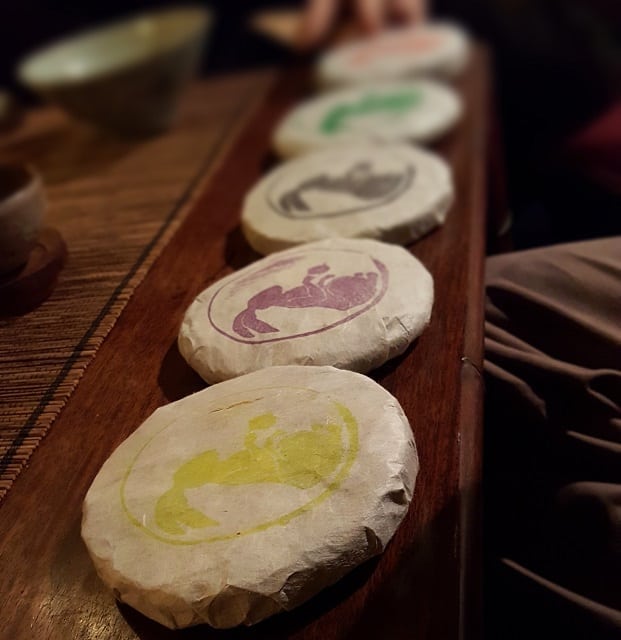
I’ve made no secret that I have a favorite tea mountain. In Yunnan province, China, puerh teas are often delineated by their region, and even further divvied by the mountains in which they were grown. While it was considered a rarity, one could get teas made from leaves from one single mountain. However, more often than not, puerhs were blends of varying (but like-profiled) growing regions. Steve not only carried five teas from my favorite mountain—Nan Nuo Shan—but they also hailed from various plots of land tended by one farmer.
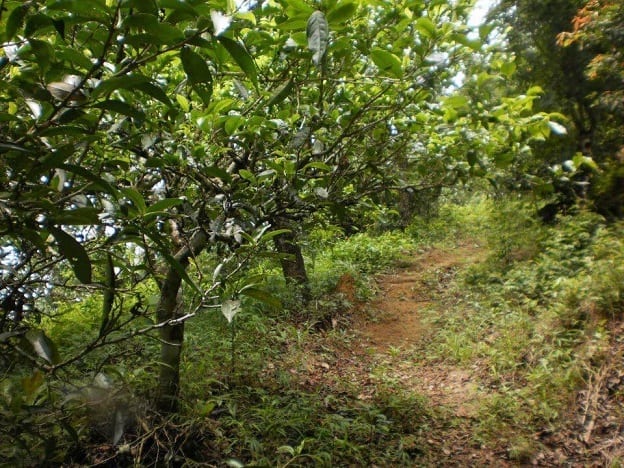
The tea master in question was Li Shu Lin, a member of the indigenous people in the region—the Aka. He possessed extensive experience working in a tea producing capacity, and eventually turned his attention to plots of land dotted with semi-wild, seed-propagated, ancient arbor assamica tea trees.
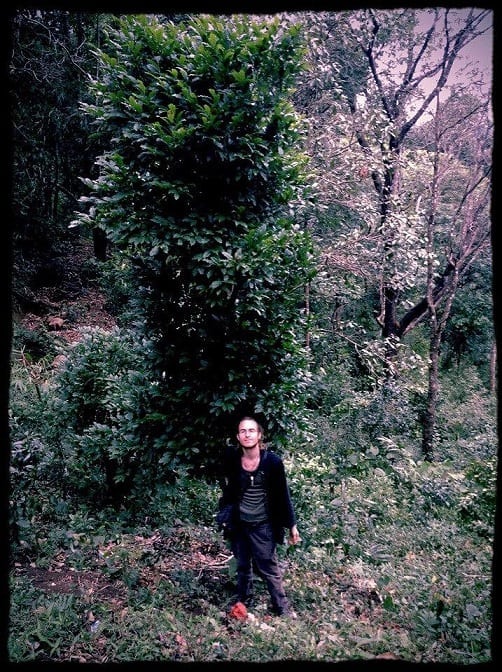
All of which he put to good use for puerh . . . and other exciting styles.
One of my personal quests was to locate a white tea grown and produced from Nan Nuo tea leaves. Until last Spring, I had yet to encounter one. It turned out, that Mr. Li produced a Yue Guang Bai (Moonlight White) on a fairly regular basis. Even cooler? He hand-pressed them into beengs (tea cakes)!
Steve kindly passed along sample chunks of each of the teas he sourced from Mr. Li. Two were black teas, one was a sheng puerh, one was a shou, and—of course—the much-anticipated (by me) white tea. Over the course of a month or so, I dug into each one and took notes. However, I didn’t want to approach the narration of those notes the same way I always did. Instead, I opted for something Steve might approve of. He was a fan of poetry, even hosted spoken-word nights at the Speakteasy. I had my answer.
Renaissance/Shakespearean sonnets!
Confession time: I’ve only ever written one sonnet in my life. To a girl. When I was drunk. (For the record, it didn’t work.) I don’t remember how I did it, so this process required a bit of a re-learning curve.
For the purpose of this exercise, I chose Shakespearean sonnets because they were the easiest to replicate. However, I took some liberties with the format. I kept the three-quatrains/one-couplet structure, but I finagled a bit with the syllables. Depending on the flow, Renaissances sonneteers varied the syllables between ten and twelve. I kept them at a strict ten. On top of that, I wasn’t entirely confident about my command of iambic pentameter, so the ending couplets didn’t adhere strictly to that format.
Without further ado (about nothing), five teas, five taster notes in sonnet form. *clasps hands* Here we go!
Raw Hong Cha
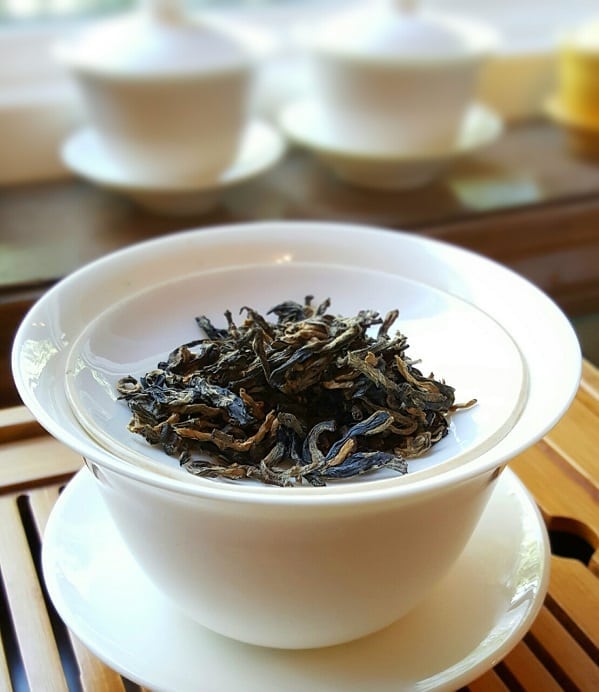
I actually had this tea before
Back in early spring of 2014.
It was unlike black teas of prior lore,
Slower oxidation; I’d never seen!
I remember liking it quite a bit,
And I was anxious for a second try.
Each leaf was gold-brown with a curl to it.
It smelled like sheng, but more malty and spry.
The first steep invoked a feeling of earth.
While the second one was like straight Dian Hong.
The third was like malt from a flower’s berth.
More infusions came; my belches were long.
Caramel was this tea’s hallowed “huigan”;
For three solid hours, I did drink and fawn.
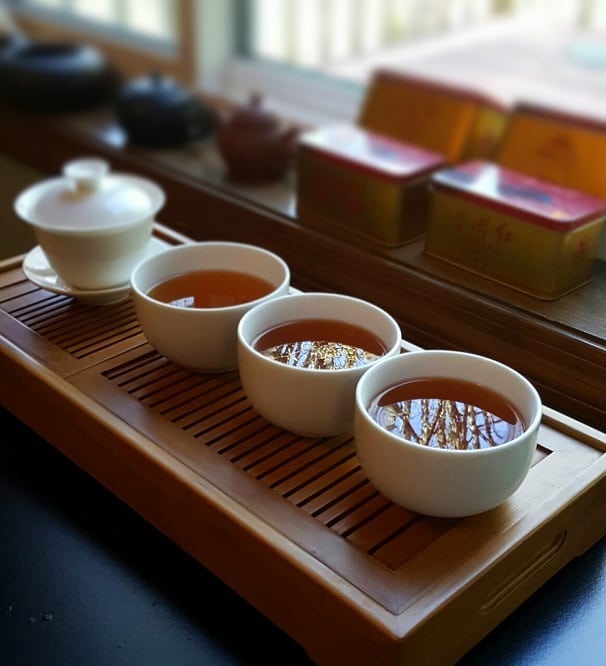
Ultraviolet Purple Black
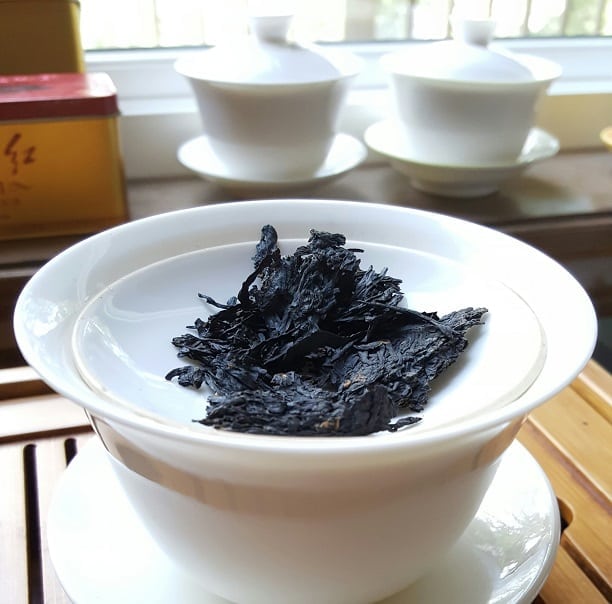
This strange tea was made from purple-ish leaves.
They were given such a hue by the sun.
Anthocyanin, everyone believes,
Is the chemical that gets that job done.
The process was near-ish to the raw black,
The leaves equally pressed into a beeng.
My piece looked like a meteorite crack.
A vibrant, obsidian-colored thing.
The first infusion made me think, “Ripe plums!”
A strange taster note for a tea so young.
The second and third? Similar outcomes!
Toasted wood and osthmanthus on the tongue.
All taster notes came with great persistence.
At the end, I pondered my existence.
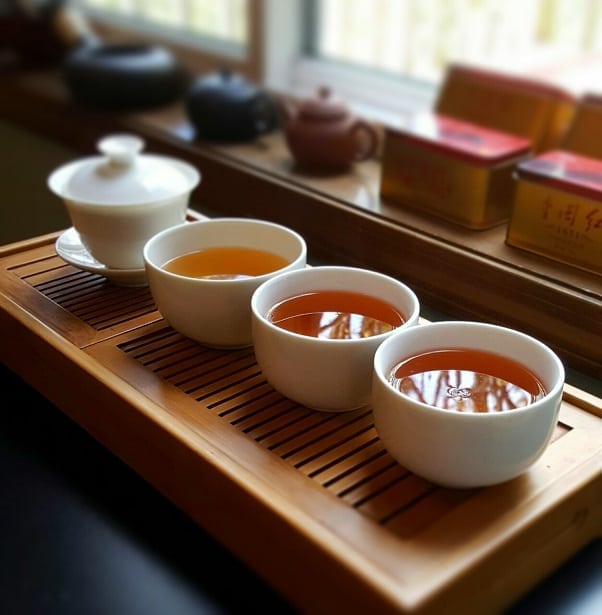
Puerh Imagination (Shou) – 2009
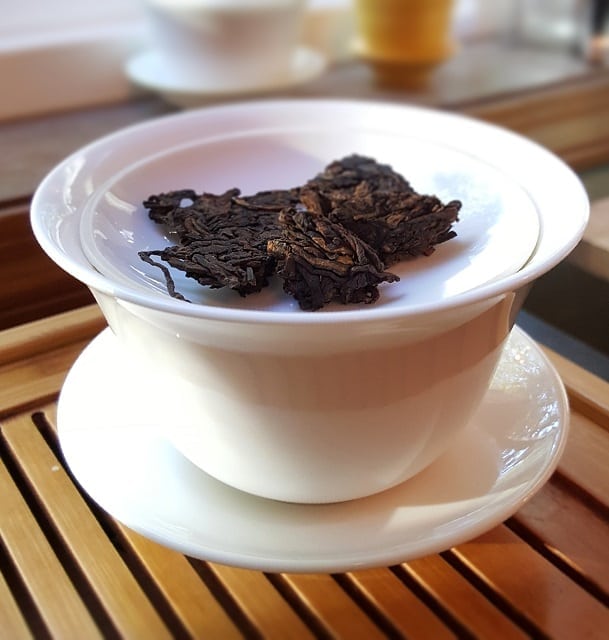
This shou puerh was lighter brown than most.
I’m not sure if age had changed the palette.
The aroma was sweet and did not boast,
Nor smelled of a fish hit with a mallet.
The first series of steeps were black as night.
I thought of a black hole made of tea steam.
The first sip was clean, smooth, and without bite.
And sweetness prevailed as if from a dream.
Cocoa sweetness, and a floral finish,
Along with an earthy underpinning,
Showed that the flavor would not diminish,
All of this was merely the beginning.
All said; I felt a cooling of my soul.
Granted, that was not the intended goal.
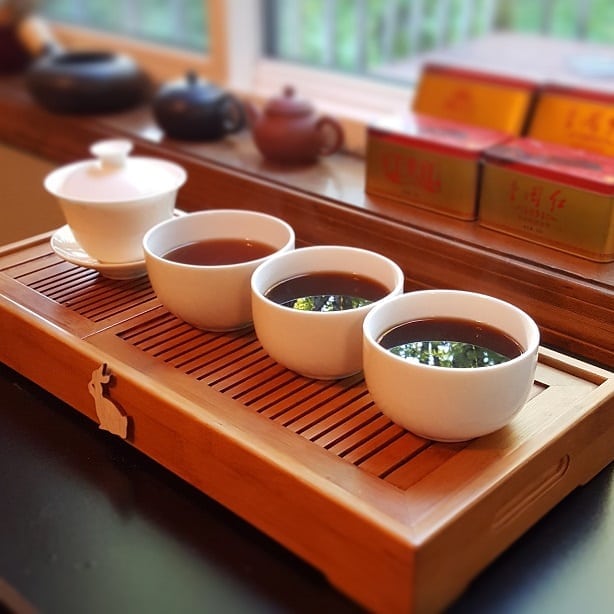
Immortal Dew Sheng Puerh
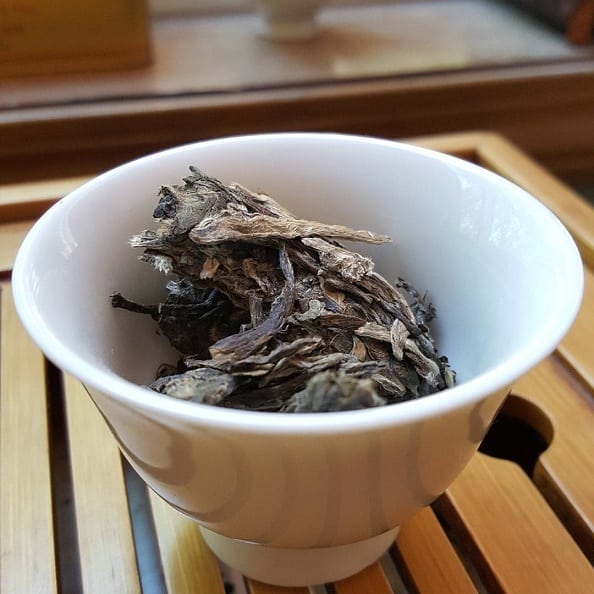
This sheng puerh hails from a single grove
From tea trees as old as 800 years.
The leaves were a furry green treasure trove,
And the smell of stone fruit assuaged all fears.
It brewed to a foggy amber liquor;
A taste ending on a “flower bed” note.
Apricot dared appear, ever quicker,
Along with a warmth felt deep in my throat.
Further infusions were more of the same.
Various shades of excellence therein.
A balance of fruit and earth, all to blame,
For my soul wondering where it had been.
This single grove sheng went straight to my head,
Like a fine qi wine. Don’t touch me. I’m dead.
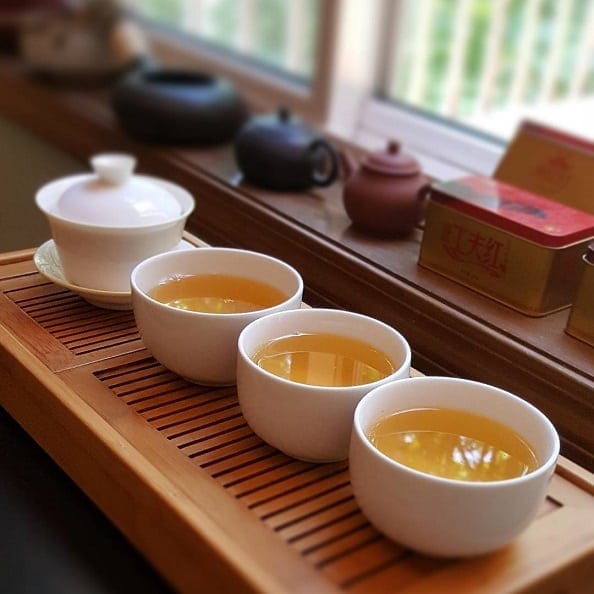
Moonlight White
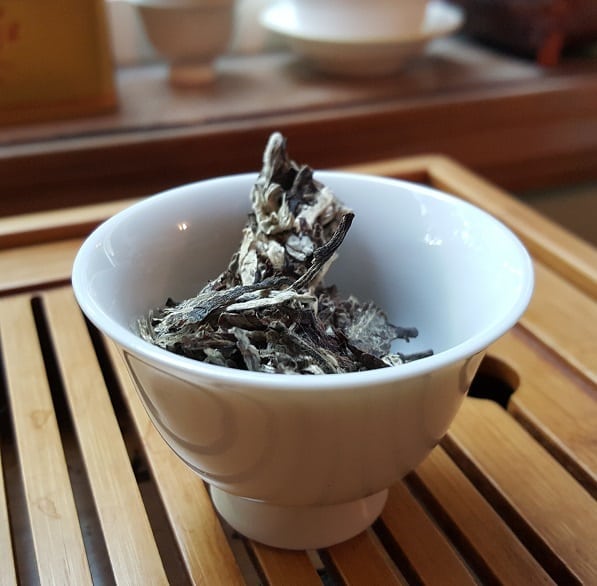
Caffeine was already hitting me hard,
But I still had one tea left on the list.
Last but not least was a beautiful shard
Of Moonlight white made in Nan Nuo Shan’s midst.
The pressed leaves looked like what I expected;
Hues of subtle beige, purple, green and white.
The leaf colors were to be respected,
For my thirst appeared with nary a fight.
It brewed quite bold with a honey-sage scent.
The flavor came off like maple-glazed fruit.
I was SO floored by how this white tea bent
My palate paradigm where it took root.
A “wild” feeling permeated throughout
This last tea session that killed any doubt.
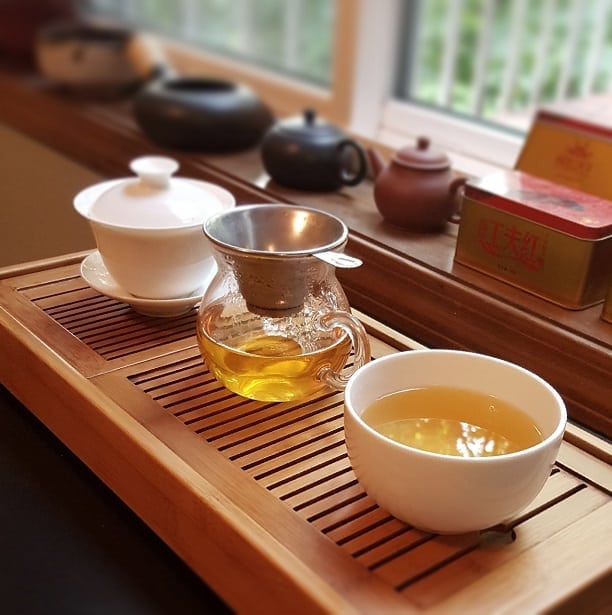
*WHEW!*
Well, that was difficult to construct.
Well worth it, though.
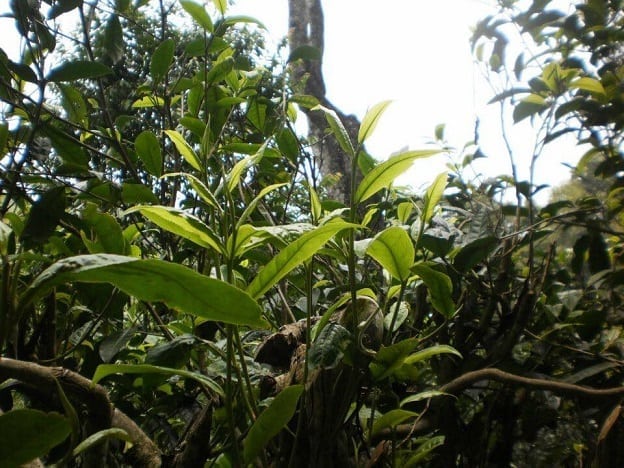
To buy these teas, you can contact Steve Odell HERE.
The individual tea mini-cakes (3.3oz.) in the collection are $45, or you can purchase chisels by the ounce for $15. The whole range of five cakes is $150, meaning you get one cake free if you buy the whole set.

Xavier
Hats off to you.
I am impressed.
lazyliteratus
Thank you.
Adrienne
These are amazing!
lazyliteratus
Thanks!